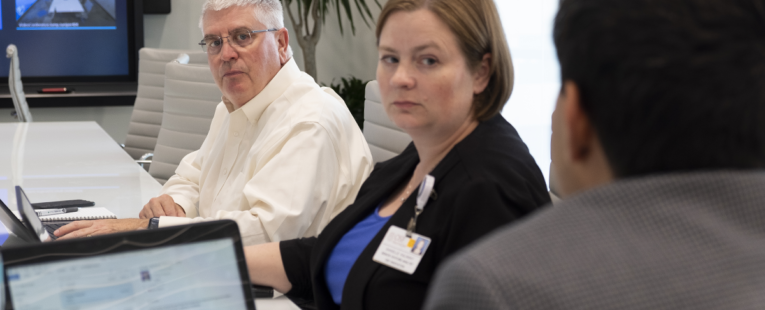Thinking back to when OSF HealthCare decided to launch a ventures program in 2016 as part of its overall innovation strategy, there were plenty of questions about how this initiative would move forward.
How should the venture program be structured to capture the most value? Where should our investment focus lie? What resources are needed? How do we educate health care providers around the strategic benefits of making venture investments in early stage companies?
About two-and-a-half years after our first investment, we find that our program is a leader in its approach to investing in ideas both financially and strategically.
We’ve vetted more than 500 companies. We’ve invested in 13 and completed follow-on investments in seven of those companies.
We are also on track to meet our goal of investing in 18-20 companies with our first $75 million fund.
Most importantly, we are seeing strategic value in many of the companies we’ve invested in.
We’ve successfully deployed Pieces Technologies’ Iris platform in the Streator market, leading to better communication among clinicians, patients and social service agencies. We are offering Regroup Therapy services in more OSF HealthCare facilities, expanding access to behavioral health services across the organization. A pilot of Epharmix, a tool that contacts patients through text messages or phone calls for regular checkups, has led to a future major expansion of the tool. These are just a few examples.
There are many other accomplishments that have taken place for OSF Ventures with its portfolio companies over the last couple of years. Here’s what we’ve learned along the way.
We needed a solid team
We initially started out with three people on our team doing everything from research and finances to relationship-building and making decisions on investments. It was a lot, but we got the work done and made many successful investments.
Over the last couple of years, we have built out the OSF Ventures team to include all of the relevant skills we need to successfully manage the program. This includes business, clinical and strong analytical skills as well as venture experience.
We also determined we needed ears to the ground in the Silicon Valley area to gain first-hand knowledge of up-and-coming technologies, software and devices that can help us solve health care problems. With that, we now have representation on the West Coast.
There’s more to investing than gaining a return on investment
OSF HealthCare launched OSF Ventures to strategically invest in new technology, software and devices with the potential to improve patient outcomes and reduce the financial burden to the health care system.
While many health care system venture groups view their programs as a means to gain financial returns, we felt it was necessary to find ways to collaborate with the startups we have invested in and achieve strategic value.
That has been a learning experience, but has proven valuable with opportunities to work with these companies on developing new products to meet our needs and possibly others across the industry. Companies have been very open to this approach.
As our OSF Ventures brand has grown across the country, startups are seeking us out because they understand the benefit of a strategic alliance with OSF HealthCare and our commitment to innovation and finding new ways to serve our patient base.
Diversification is key
Our team evaluates potential solutions based on what will help OSF HealthCare meet its key objectives and strategic goals. We do this from the perspective of making sure we diversify our portfolio between medical devices and diagnostic technologies as well as digital health solutions.
We want to be broadly focused to ensure we take advantage of technologies across multiple sectors that are evolving and of value to our patient care models and our populations.
We must continue to evolve
Over the next couple of years, we will work to complete our commitment of the initial OSF Ventures fund and evaluate what we’ve learned and how we might modify our program as we continue to contribute to the broader innovation strategy.
We will continue to assess how we work with other groups by identifying clinicians or other disciplines who could benefit from a relationship and vice versa with the venture program.
We will also stay on top of significant emerging technologies that haven’t yet gained wide adoption in health care. This includes artificial intelligence concepts and techniques that we believe will soon become more relevant in health care service offerings.
Another example is the use of blockchain, a digitized, decentralized, public ledger of all cryptocurrency transactions, which we believe may become more prevalent in the coming years. It is imperative that we understand its applications as well.
Overall, we must continue bringing in new technologies that OSF HealthCare can use to improve patient outcomes, clinical care and efficiencies across the Ministry as a critical part of our role in OSF Innovation.
Last Updated: November 8, 2018
